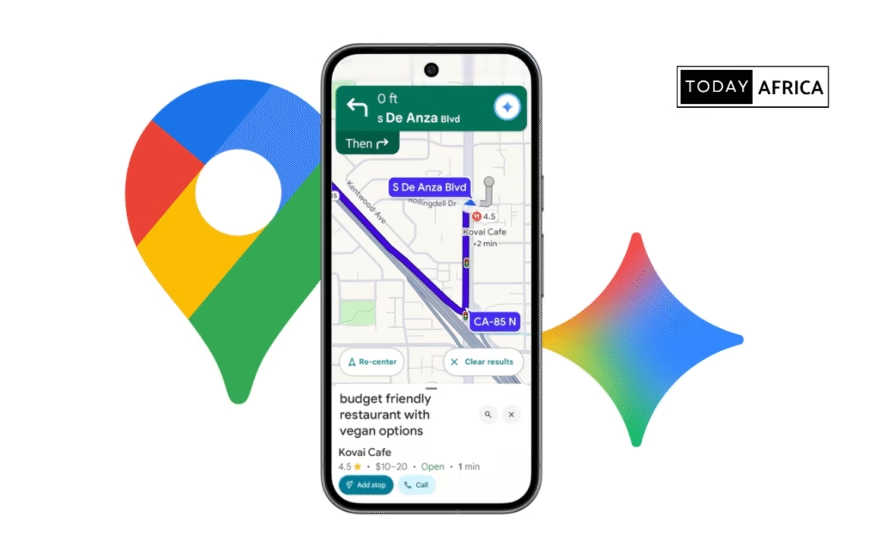Google Maps thinks like a co-pilot as it gets its biggest upgrade in years, this time powered by Gemini.
The rollout introduces a more conversational, hands-free experience that lets users talk to Maps, ask complex questions, and get directions using real-world cues instead of distance-based prompts.
“It can tell you about the parking, what a place is like, and even answer questions in a much more conversational experience,” said Amanda Leicht Moore, Product Director for Google Maps. “It can also integrate with all of the capabilities Gemini has. So you can ask it questions about the news, or about any topic.”
In practice, this means users can now say things like, “Is there a milkshake spot along my route?” or “How many event centres are nearby?” without touching their phones. Google says Gemini can even follow up with multi-step context, like checking if there’s parking nearby or suggesting what’s popular on the menu.
The bigger shift, though, is in how Maps gives directions. Instead of “turn left in 500 feet,” users will now hear “turn right after the Thai Restaurant.” It’s meant to sound more natural and mirror how people actually navigate.
Another new feature: proactive traffic alerts, notifies users about accidents, closures, or flooding ahead, even when they aren’t actively navigating.
And through Lens with Gemini, users can hold up their phone to identify restaurants or buildings in view and ask, “What is this place and why is it popular?”
These features roll out in the U.S. this month, with Android Auto integration “coming soon.” Google says chats won’t be used for ad targeting, a key privacy reassurance as Maps becomes more conversational.
But this upgrade raises a bigger question for users in Africa, where Maps has long struggled with accuracy. One frequent user told us that sometimes she has already arrived, but Google Maps insists she’s still seven minutes away.
Read Also: Ventures Platform closes $64 million fund with Nigeria’s government as an investor
Drivers on ride-hailing apps have shared similar stories, being routed through longer detours when their destination is just around the corner.
So, will Gemini change that? Possibly. Its ability to recognise patterns and landmarks could improve navigation where data exists. But the truth is, AI can’t correct what hasn’t been mapped. In much of Africa, incomplete road data, informal addresses, and outdated visuals still limit how precise Maps can be.
For now, even with Gemini’s brainpower, your best bet for accurate directions across most African cities remains what it’s always been: asking people, going out often, and knowing your own way around.
Leave a comment and follow us on social media for more tips:
- Facebook: Today Africa
- Instagram: Today Africa
- Twitter: Today Africa
- LinkedIn: Today Africa
- YouTube: Today Africa Studio
















